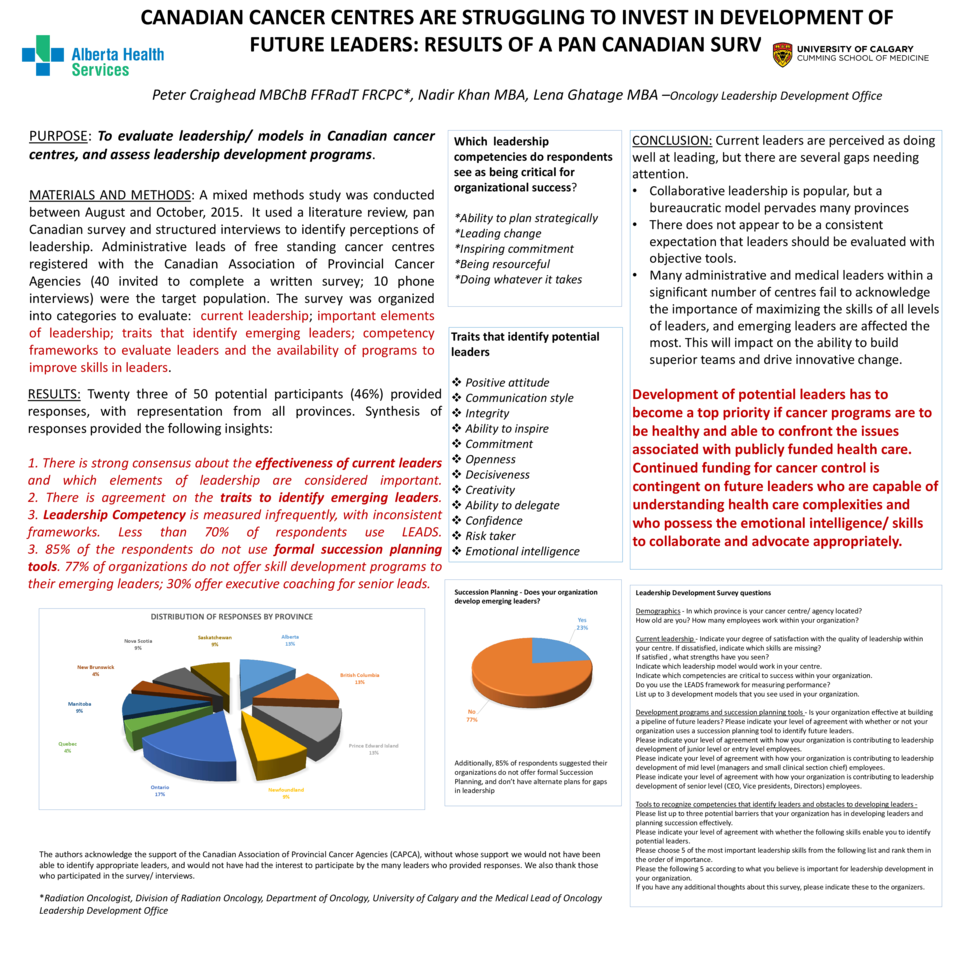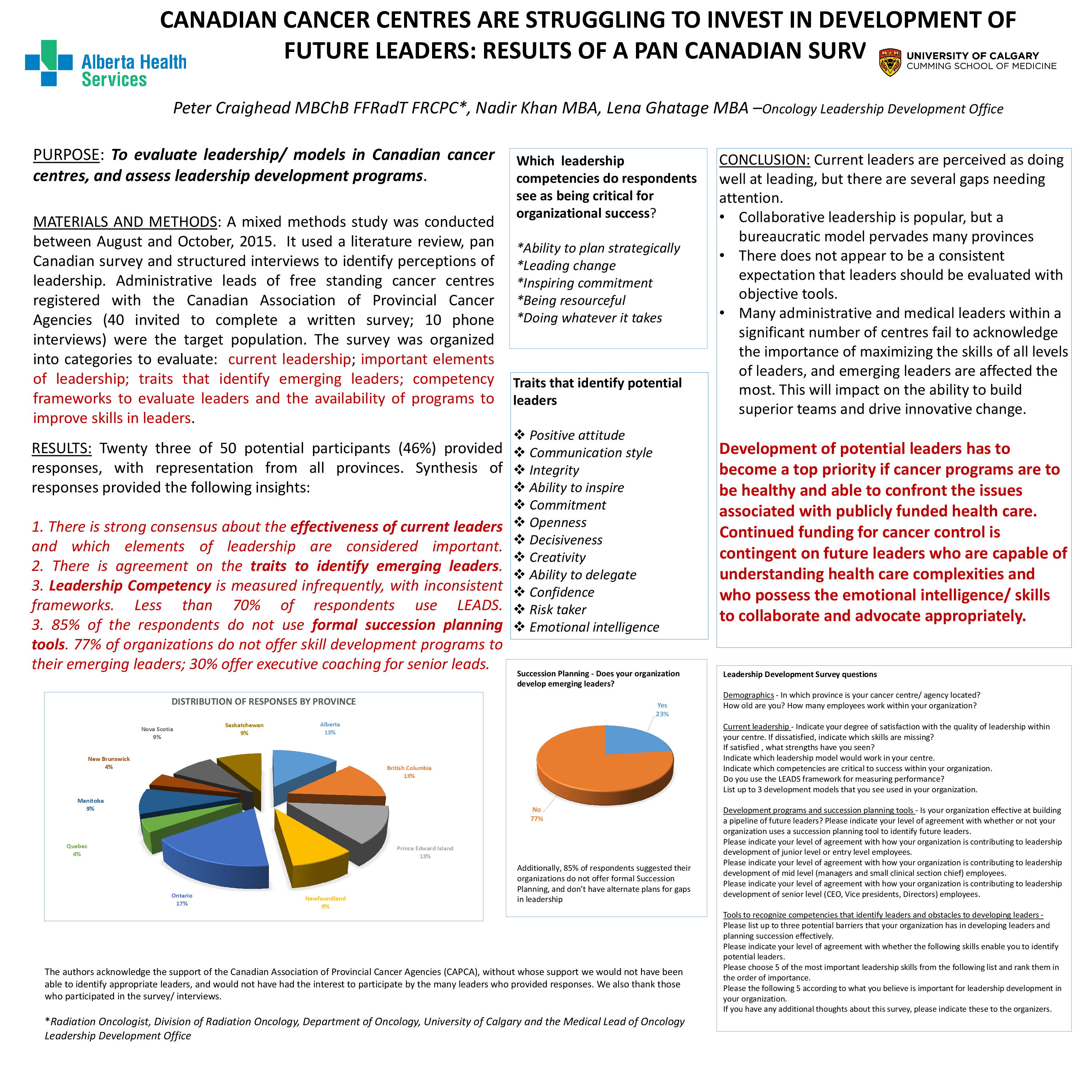Abstract
This health services study was conducted between August and October 2015 by the Oncology Leadership Development office in Calgary. It used mixed methods, including a literature review, pan Canadian survey and structured interviews to evaluate leadership in Canadian cancer centres, and assess the health of leadership development programs within these centres. Forty administrative leads of free standing cancer centres registered with the Canadian Association of Provincial Cancer Agencies were invited to respond to a survey examining elements of leadership. Ten medical leaders provided responses to the questions by telephone. This survey consisted of 26 questions organized into categories such as: rating of current leadership; important elements of leadership; traits that identify emerging leaders; the use of competency frameworks to evaluate leaders and the programs offered to improve skills in emerging leaders.
Twenty three of the potential 50 participants (46%) provided responses, which is quite reasonable for surveys of this type. An attempt was made to expand the number of responses by providing two email reminders. Synthesis of responses provided the following insights:
1. There is strong consensus about effectiveness of current leaders and the elements of leadership.
2. Good agreement was reached on which traits allow identification of emerging leaders.
3. It was clear that competency frameworks are not employed consistently, with less than 85% of respondents reporting use of the LEADS tool to evaluate their leaders.
3. Only 15% of the respondents use formal succession plans to sustain healthy leadership, and 75% of respondents do not offer skill development programs to any of their leaders.
Conclusion: Although current leaders are perceived as doing well at leading, there are several gaps needing attention:
- Although collaboration is popular, 20% of respondents described their organization as having a bureaucratic model.
- There is no consistent tool used for evaluation of leaders, with few respondents concerned about this gap.
- Administrative and medical leaders within a significant number of centres failed to acknowledge the importance of developing leaders, with emerging leaders being affected the most by this inattention.
It is imperative that development of young leaders becomes a top priority for cancer programs to be healthy and to be able to confront the issues associated with publicly funded health care. Continued funding for cancer control is contingent on future leaders who are capable of understanding health care complexities and who possess the emotional intelligence/ skills to collaborate and advocate appropriately.





